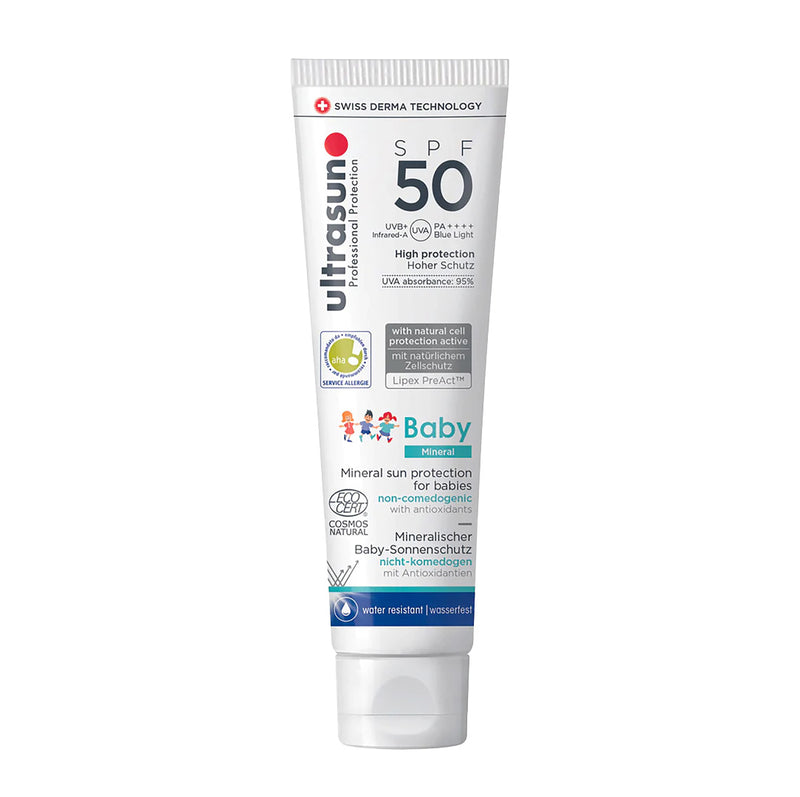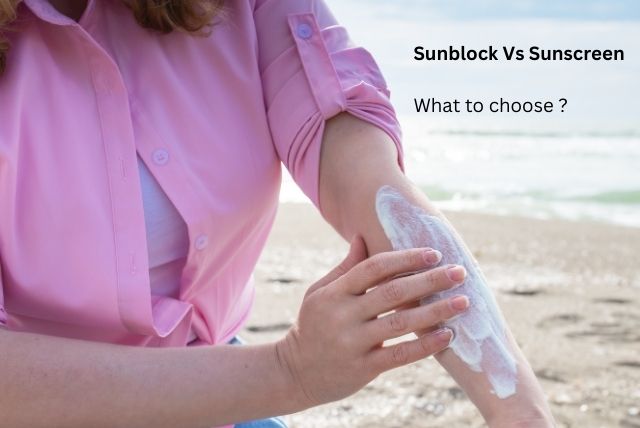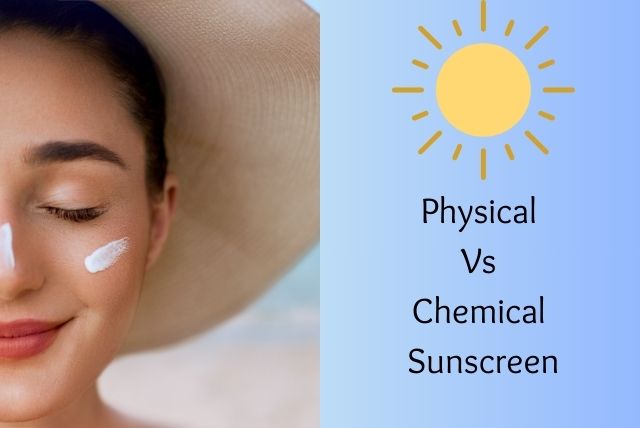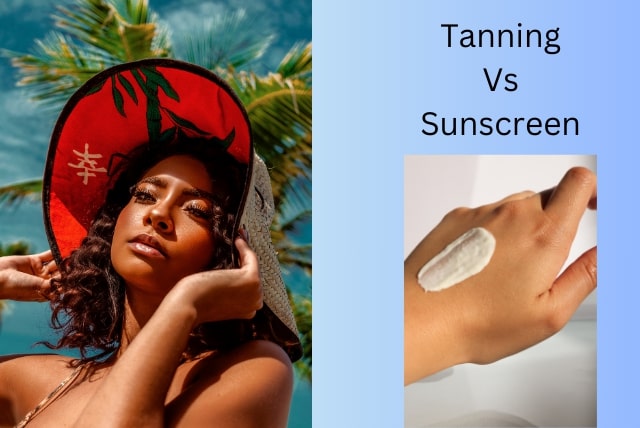In the relentless battle against the sun's harmful UV rays, sunscreen is our shield. As we delve into the world of sun protection, it's crucial to explore the two main categories of sunscreen: chemical and mineral. This article focuses on the best mineral sunscreen or physical sunscreen in India recommended by dermatologists, known for its skin-friendly ingredients.
First of all, we will see what is the difference between physical and chemical sunscreen.
Physical vs. Chemical Sunscreen
Active Ingredients: While mineral sunscreens use zinc oxide and titanium dioxide, chemical sunscreens contain various synthetic compounds like avobenzone and oxybenzone.
Mode of Action: Mineral sunscreens create a physical barrier, reflecting and scattering UV rays, while chemical sunscreens absorb and neutralise these rays through chemical reactions.
Which is best to use Mineral Sunscreens or Chemical Sunscreen ?
Mineral and chemical Sunscreens both provide almost same type of sun protection. But the main difference is ingredients used in the product. Mineral sunscreen ingredients does not harm your skin while most of the chemical sunscreen brands uses some controversial ingredients that can be allergic to some specific type of skin.
But Ultrasun brand manufactures both mineral and chemical sunscreen. Ultrasun did not use any controversial ingredients in their products. So, you can try any Ultrasun product whether it's chemical or mineral sunscreen.
What Are Mineral or Physical Sunscreens?
Mineral sunscreens, or physical sunscreens, are formulated with two key active ingredients: zinc oxide and titanium dioxide. These natural minerals create a protective barrier on your skin's surface.
Key Ingredients
Zinc Oxide: This versatile mineral acts as a physical barrier, reflecting and scattering UV rays away from the skin.
Titanium Dioxide: Another powerful mineral, titanium dioxide, offers excellent UV protection and is well-tolerated by most skin types.
How does it Work?
Mineral sunscreens form a physical barrier on the skin's surface, preventing UV rays from penetrating and causing damage. They act as shields, effectively reflecting and scattering UVA and UVB rays.
Advantages of Mineral Sunscreens
Broad-Spectrum Protection: Mineral sunscreens offer comprehensive protection against UVA and UVB rays, protecting your skin from ageing and burning effects.
Suitable for Sensitive Skin: These sunscreens are gentle on sensitive skin types and are often recommended for those with allergies or skin conditions.
Environmental Benefits: Mineral sunscreens are considered environmentally friendly, as their ingredients are non-toxic and do not harm coral reefs.

Dermatologists Recommended Physical Sunscreen or Mineral Sunscreen in India
Dermatologists are experts in skincare and skin health. Their recommendations are based on scientific knowledge and clinical experience, ensuring that the products they suggest are both safe and effective for your skin. Several mineral sunscreens are available in the online and offline market but you can buy the dermatologist recommended mineral or physical-based Ultrasun pediatrics sunscreen in India with SPF 50 Pa++++ rating.
Why Ultrasun mineral sunscreen is best:
Recommended by Dermatologist: This mineral sunscreen is one of the safest for babies and kids, guided by a dermatologist.
Broad Spectrum Protection: Provides broad spectrum protection with SPF 50 pa++++ rating. It protects your skin from all harmful rays like UVA, UVB, Infrared and blue light rays.
Water Resistance: It is water resistant and easy to apply.
Free from Harmful Chemicals: Ultrasun sunscreen is free from harmful chemicals that will not harm your kids or baby's skin.
Made from Swiss Care technology: Made from Swiss care technology with lamellar technology for long-lasting sun protection.
Non-comedogenic: This physical sunscreen is non-comedogenic, so it is suitable for hypersensitive skin.
Factors to Consider When Choosing a Mineral or Physical Sunscreen
Selecting the right mineral or physical sunscreen requires careful consideration of various factors:
1. Skin Type and Sensitivity
Your skin type is crucial in determining which mineral sunscreen is best suited for you. For those with sensitive or acne-prone skin, choosing a sunscreen specifically formulated for these needs is essential.
2. SPF Rating
The Sun Protection Factor (SPF) rating indicates sunscreen's protection against UVB rays. Dermatologists often recommend an SPF of at least 50 for daily use.
3. Water Resistance
If you plan to spend time in the water or sweat profusely, opting for a water-resistant sunscreen is advisable. Look for labels that specify water resistance and follow reapplication guidelines.
4. Texture and Application
Mineral sunscreens come in various textures, from creams to sprays and powders. The choice depends on personal preference and how you plan to incorporate sunscreen into your skincare routine.
5. Application Tips
Knowing how to apply physical or mineral sunscreen correctly is crucial to maximise its effectiveness.
How to Apply Physical or Mineral Sunscreen Correctly ?
Begin by applying sunscreen generously to all exposed skin areas at least 15 minutes before sun exposure. Ensure even coverage, and remember commonly overlooked areas like the ears and neck.
Reapplication Guidelines: Reapply your sunscreen every two hours or more frequently if you've been swimming or sweating. It ensures continuous protection throughout the day.
Makeup Compatibility: Mineral sunscreens can be layered under makeup without causing clumping or caking. Look for sunscreen products designed to be worn under makeup for added convenience.
Common Myths About Mineral Sunscreens
Mineral sunscreens, known as physical sunscreens, have gained popularity for their gentle and adequate sun protection. However, like many skincare products, they are not immune to misconceptions. Let's debunk some common myths about mineral sunscreens to help you make informed choices for your sun protection routine:
Myth 1: Mineral Sunscreens Always Leave a White Cast
One of the most persistent myths about mineral sunscreens is that they invariably leave a noticeable white cast on the skin. While this might have been true for early formulations, modern mineral sunscreens have come a long way. Many brands now offer mineral sunscreens with micronised particles that blend seamlessly into the skin, leaving little to no white residue. Choosing the correct formulation can help minimise any white cast effect.
Myth 2: Mineral Sunscreens Offer Inferior Sun Protection
Some people believe mineral sunscreens provide less effective sun protection than chemical sunscreens. In reality, mineral sunscreens offer broad-spectrum protection against UVA and UVB rays. They create a physical barrier on the skin's surface, reflecting and scattering UV rays, which is a different mode of action than chemical sunscreens but equally effective.
Myth 3: Mineral Sunscreens Are Not Suitable for Dark Skin Tones
Another misconception is that mineral sunscreens are unsuitable for individuals with darker skin tones. This myth likely stems from concerns about the white cast. However, many mineral sunscreen brands now offer tinted or sheer formulations that blend seamlessly with a wide range of skin tones. With the proper product selection, mineral sunscreens can suit everyone, regardless of skin tone.
Myth 4: Mineral Sunscreens Are Thick and Uncomfortable
While some mineral sunscreens may have a thicker texture, it's important to note that not all mineral sunscreens are the same. Many brands have developed lightweight and sheer formulations that are comfortable to wear. Additionally, mineral sunscreens are often preferred by those with sensitive or acne-prone skin precisely because they tend to be less irritating and heavy than some chemical sunscreens.
Myth 5: Mineral Sunscreens Don't Need to Be Reapplied
All sunscreens, including mineral ones, must be reapplied regularly for adequate sun protection. Even if a sunscreen claims to be water-resistant, it's still advisable to reapply after swimming or sweating to ensure continuous coverage. Mineral sunscreens are no exception to this rule. Following reapplication guidelines is essential to maintain adequate protection throughout the day.
Conclusion
In conclusion, the world of mineral sunscreens offers a wealth of options for protecting your skin from the sun's harmful rays. From this guide, you learn which is the best mineral or physical sunscreen in India. With dermatologist recommendations and informed choices, you can enjoy safe and effective sun protection in India. Always remember that consultation with a dermatologist is valuable in tailoring your sun protection routine to your unique needs. Empower yourself with knowledge and make sun safety a priority in your daily skincare regimen.
Read more
- Best Sunscreen For Dry Skin In India Recommended by Dermatologist
- A complete Guide: Does Sunscreen Make You Dark?
- Best Sunscreen for oily skin in India recommended by dermatologist
- Ingredients in Sunscreen to Avoid and Why
- Can Sunscreen Cause Acne? Answered By Dermatologist
- How to Reduce Melanin in Skin: Detailed Guide
- How to Remove Sun Tan from Face Overnight








